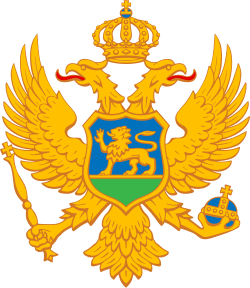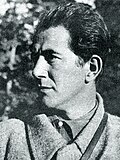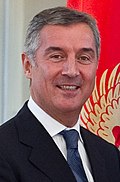An editor has determined that sufficient sources exist to establish the subject's notability.(October 2025) |
| Prime Minister of Montenegro | |
|---|---|
| Predśednik Vlade Crne Gore Предс́едник Владе Црне Горе | |
 | |
| Appointer | Parliament of Montenegro |
| Term length | No term limit |
| Inaugural holder | Božo Petrović-Njegoš |
| Formation | 20 March 1879 |
| Salary | US$15,522 annually [1] |
| Website | www.gov.me |
 |
|---|
| Constitution |
The prime minister of Montenegro [a] , officially the president of the Government of Montenegro [b] , is the head of the government of Montenegro. The role of the prime minister is to direct the work of the government, and to submit to the Parliament the government's program, which includes a list of proposed ministers. The resignation of the prime minister would cause the dissolution of his government.
Contents
- History
- List of prime ministers
- Preceding posts
- Monarchy
- Heads of administrations before 1945
- Socialist republic
- Parliamentary republic
- Timeline
- See also
- Notes
- References
- External links
The current prime minister, Milojko Spajić, leader of the political party Europe Now!, was approved by the Parliament of Montenegro on 31 October 2023, after the formation of the 44th government of Montenegro. [3]























































